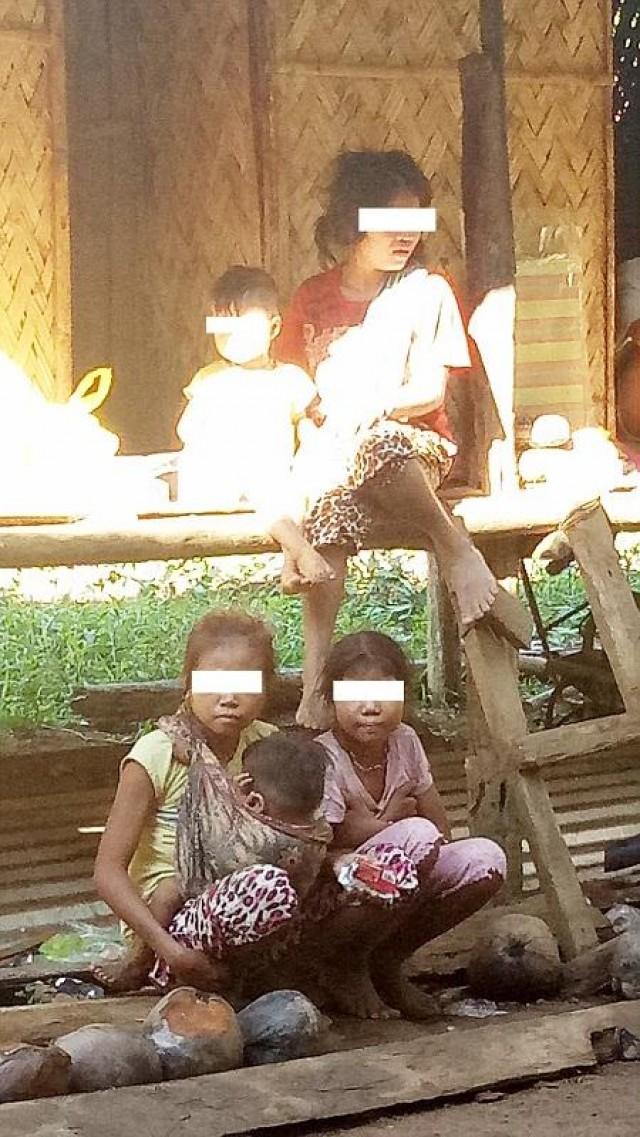The child brides of Palawan
In Barangay Ransang, Palawan, girls as young as 13 years old already have huge responsibilities to carry.
Minnie*, a Grade 4 student in the village, has been expecting for seven months.
At 12 years old, she got married and a year later, Minnie had to stop school to take care of herself during her pregnancy.
In Minnie's barangay, it was normal for young girls to get married to older men. Minnie herself married a man eight years older than her.
"Mas gusto ko po sana mag-asawa kasi po para may mag-alaga ng anak ko," Minnie said in an interview with Kapuso Mo, Jessica Soho (KMJS).
["I decided to get married so someone could take care of my child."]
Although she believed that she was ready to care for a child, she admitted that she was afraid that her body could not take the demands of giving birth.

Leonora*, who just got married to a 28-year-old man last December, is only 14 years old.
Her husband Maryo has two wives — Leonora and her 27-year-old sister.
Despite this arrangement, Leonora said that she was happy.
In her tribe, it was legal for men to have many wives. In Palawan, this cultural practice is called the "duway."
According to the tribal leader, it was a tradition they grew up with.
Some of the children in the tribe even admitted to wanting to marry their own siblings to preserve their lineage. Others said that they were happy to marry their second and third cousins.
According to the Family Code of the Philippines, only those aged 18 and above are allowed to get married.
However, the Indigenous People's Rights Act (IPRA) stated that there was no legal age for marriage.
To address the concern of child brides in Palawan, lawmakers drafted a bill titled, "Children Not Brides."
The bill seeks to impose penalties on those who facilitate and officiate child marriages. Those who will facilitate and officiate child marriages will be fined at least P 40,000.
The bill also pushed for a prison sentence for parents, relatives and guardians who would facilitate and officiate the marriages of their young children.
"Intindihin natin iyong karapatan ng bata. Kailangan silang mag-enjoy sa kanilang pagkabata muna," said Dr. Amado Parawan, a health and nutrition adviser from the Save The Children Philippines.
[“We have to understand the children’s rights. They need to enjoy life.”]
"Kasi kung mabuntis iyan, diba, hindi na siya maka-enjoy ng kanyang childhood. Hindi na siya makapag-aral. Ang daming mga opportunities na kanyang mami-miss," he added.
[“If they get pregnant, how will they be able to enjoy their childhood? They won’t be able to continue their studies. They will miss out on a lot of opportunities.”]
Every month, health workers trek up a steep mountain for five hours to extend support to the children. Together with the KMJS team, health officials from the Provincial Health Office donated food and medicine to the young mothers in the village.
The KMJS team also brought a midwife to the barangay to help the young girls.
According to a child psychologist, it would be difficult to change the situation as the kids already grew up with that mindset.
"Maaring sabihin natin ito iyong isang komunidad na ito lang alam nilang batas. Ito iyong sinusunod nila. Ito ang tradisyon, ito ang kultura natin. Hindi iyan puwedeng baguhin. Pero puwedeng ayusin," the psychologist said.
["We can say that this is a community where (marrying young children off or marrying at a young age) is like a law. This is what they follow. It has become ingrained in their tradition and culture. We can't change it, but we can fix the system."] — Angelica Y. Yang/LA, GMA News




